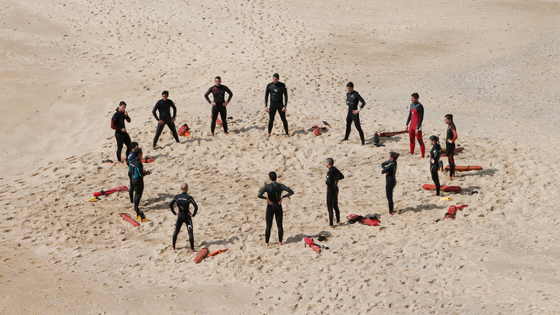What do you think is most important in your organization, high productivity or high morale? Is it possible to have both? Finding a balance between the two is a worthy goal but which should be the focus of your organization; which comes first?

At every company I have worked for (and with) we have been forced to do more with less. As a rule (possibly a business maxim) all growth curve companies have way more work than people to do the work. I could work 100+ hours a week and still have 100s of hours of work sitting on my desk. Maybe you can relate.
That is why we need High Productivity
Too many of us give up our personal or family time working nights and weekends. When this happens too much, morale dips, burnout sets in.
When Morale dips, Productivity dips.
To combat this, many companies attempt team bonding opportunities, but they aren’t working. Often, they eat into the bottom line with no noticeable benefit. Where is the return on investment? Let’s look at a couple of morale building examples. One was incredibly effective and the other only moderately.
- Annually the entire staff takes 3 days for a staff planning conference and retreat. Driving 3 hours to a beach town, getting hotel rooms, and planning. The conference typically includes breakout sessions, trainings, brainstorming, and year reviews. Plus, drinks, socializing and fine food.
- Arranged a local food truck to park outside the office during the lunch rush. The experience was completely optional and, as an organization, no reimbursement or subsidy was offered.
Old Leadership would suggest that the staff conference would have the most noticeable positive impact on staff morale. You would be wrong.
Modern Leadership
In my experience, nothing positively affected morale more noticeably than the food truck.

Here’s why
- Optional– Staff conferences (or retreats) are required. Regardless of personal commitments (think appointments or volunteer work) and family responsibilities (little league, dance recitals), everybody on staff is expected to participate. The food truck was 100% optional. When activities are optional the pressure to participate is lowered becoming more casual and enjoyable.
- Cost– Mandatory events are covered by the organization and staff have minimal financial investment. It is harder to get staff (anyone) to appreciate something they don’t have a personal stake. When individuals pay for something themselves they appreciate it more.
- Organic– The single biggest factor affecting impact. Experiences that are planned, required and coordinated are forced. Expectations are high and delivery is low. The food truck was natural and created an organic buzz of anticipation. There was no expectation, just natural excitement
- Options– Organized conferences leave little time for spontaneity. Typically coordinated from breakfast through the evening activities, there is no time to call home, catch up on email or sneak a nap. Although many sessions are well done, and some were fun, there is rarely a chance to choose your own adventure. With the food truck, you could go out when you pleased, split items with co-workers and even go back multiple times. People congregated in front of the truck just to talk and laugh.
- Forced interaction– We have all been to conferences and played the “get-to-know-you” game (hate them). Time is scheduled for introductions, conversations and socializing. Everything feels forced and fabricated. People who normally talk casually around the watercooler now seem forced and guarded. Optional organic experiences cultivate casual conversations that build into true bonding. (tweet that)
- Expectation– Organized conferences or activities come with built in expectations. This automatically separates those who will enjoy the activity and those who will criticize (there always will be). The expectation sets a bar that the experience will either live up to fail to live up to. The more organized the activity, the higher the bar is set.
- During Work Hours– I am very protective of my personal time. I spend most of my life (already) at work. Staff conferences take away personal time. Activities that allow staff to bond but do so without eating into personal time are more powerful and create better morale building experiences. When eating lunch at the food truck, no one is required to sacrifice personal time.
Staff conferences have their value. Organizations need time to plan and coordinate training, to prepare for upcoming strategies and set direction. But, recognize, the time and financial investment cannot compare to the impact of an optional organic staff experience. Strategically we should do both. Just don’t arrange a food truck every week or it will become expected, another distraction, it’d become a staff planning conference.